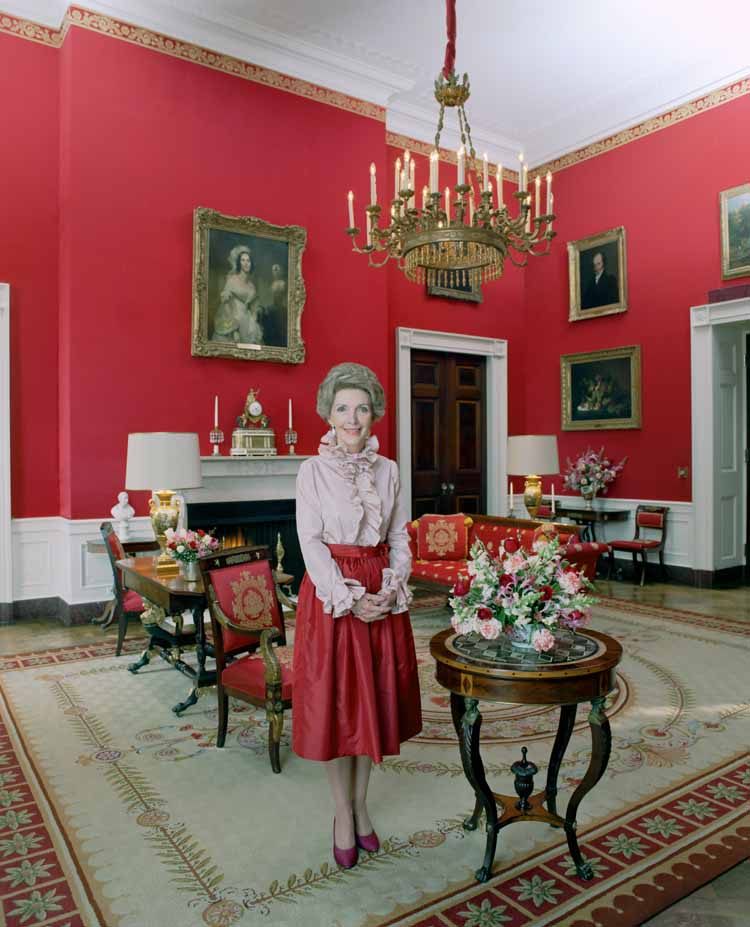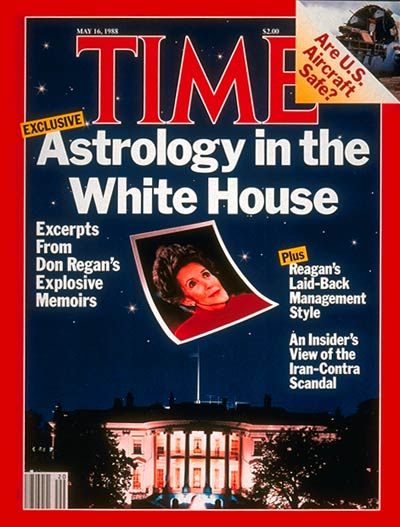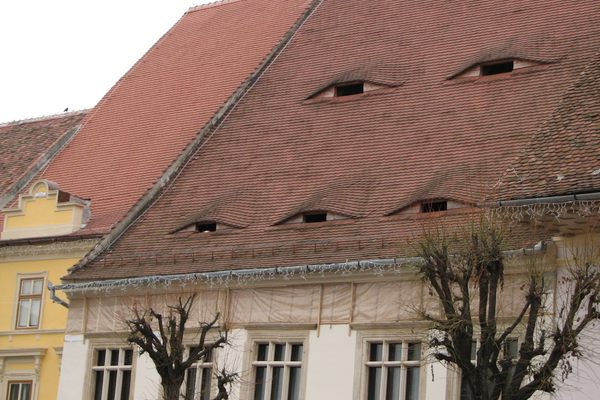How Nancy Reagan Became Forever Linked with Astrology
In 1988, a former aide wrote a book that made her astrological beliefs a matter of public record.

Ronald and Nancy Reagan waving from a limo in 1981—the year she began calling an S.F. psychic. (Photo:White House Photo Office/Public Domain)
On March 6th, a spokesman announced the death of Nancy Reagan, 94, the former First Lady. She died at her home in Los Angeles.
Reagan will be remembered for many things—her acting career, the “Just Say No” campaign, her behind-the-scenes political savvy. But she was also responsible for one of the stranger episodes of White House history: The use of an astrologer to make scheduling decisions for a sitting president.

Even before a White House aide, Donald Regan, wrote about the astrological leanings of the Reagans in his 1988 tell-all book, there were signs (no pun intended) that the ancient study of the moon and stars played a big part in the couple’s life. In his 1965 book, Where’s the Rest of Me?, the former president wrote of his friendship with astrologer Carroll Righter, noting that the married couple read astrological charts daily. In an LA Times story, the spokesman for the now-deceased Righter confirmed that President Reagan never publicly revealed his exact birth time as a precaution against letting people read his exact charts and perhaps control him—“It was a pretty smart move,” the spokesman said.

Nancy Reagan’s official 1981 White House portrait. (Photo: White House Photo Office/Public Domain)
In 1967, after his election as California governor, Ronald Reagan chose a strange hour to be inaugurated—12:10 a.m. The outgoing governor Pat Brown and many L.A. astrologers, according to the LA Times, believed it was for astrological reasons. (Reagan himself rejected that notion, saying he didn’t want to miss a football game and then re-scheduled the swearing-in to a more conventional 12:01 a.m.)
Astrology became more of Nancy Reagan’s domain, publicly, in response to Regan’s book. In the aftermath of its publication, numerous (albeit anonymous) staffers offered examples of the astrological influence on the presidency. One former aide told the New York Times that President Reagan timed his re-election campaign announcement to favorable astrology, for instance. Ted Koppel reported that an astrologer had warned Nancy Reagan that there was going to be “an incident” on March 30, 1981—the day that her husband was shot. In response questions, White House communications director Marlin Fitzwater told reporters:
”It’s true that Mrs. Reagan has an interest in astrology. She has for some time, particularly following the assassination attempt in March of 1981. She was very concerned for her husband’s welfare, and astrology has been part of her concern in terms of his activities.”
When asked about astrology, President Reagan also deflected the issue to his wife, saying that her audience with an astrologer after his assassination attempt could be explained by the upsetting nature of the event itself, “a trauma that didn’t go away easily.” Yet, at the same briefing, he declined to say whether or not he actually believed that the future could be foretold by examining one’s time of birth: “I’ve not tied my life by it, but I won’t answer the question the other way because I don’t know enough about it to say, is there something to it or not.”

The controversial excerpt. (Photo: Time Magazine)
The astrologer in question was a San Francisco socialite named Joan Quigley, who, according to a 1988 People magazine story, Nancy Reagan began calling after the 1981 shooting. The association would continue throughout her husband’s two terms in the White House. Prior to Donald Regan’s revelations, the Vassar-educated seer maintained the discretion expected of any country club Republican. Quigley told People:
“I had astrologer friends call me saying, ‘Reagan must have had his chart done,’” after they noticed many of Reagan’s political moves were timed for optimal celestial intervention. Quigley demurred, “I just said, ‘Yes. He must have been consulting someone.’”
While Quigley downplayed her involvement in Presidential affairs to People, claiming she only spoke to the President once and had no involvement in, among other things, the 1985 Geneva summit with the Soviet Union, her 1990 memoir, What Does Joan Say?: My Seven Years as White House Astrologer to Nancy and Ronald Reagan tells quite a different story. The book’s title, Quigley claimed, was a question the president routinely asked his wife. (Quigley says that she wrote her book as a response to Nancy Reagan downplaying Quigley’s influence in Nancy’s 1989 memoir, My Turn.)
There is no doubt that superstition was a predilection shared by both Reagans, not just Nancy. Ronald Reagan was widely known to carry good luck charms with him, as well as believe that Abraham Lincoln’s ghost haunted the White House. And Nancy wasn’t the only superstitious First Lady—Florence Harding famously relied on “Madame Marcia” Chaumprey to guide her husband’s presidency. As the story goes, Marcia predicted in 1920 that Warren Harding would win the Republican nomination and the general election, but at the cost of his life. President Harding died in office on August 2, 1923.
With additional reporting by Jessie Guy-Ryan.







Follow us on Twitter to get the latest on the world's hidden wonders.
Like us on Facebook to get the latest on the world's hidden wonders.
Follow us on Twitter Like us on Facebook